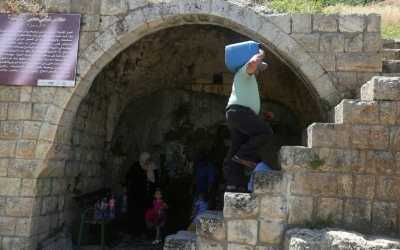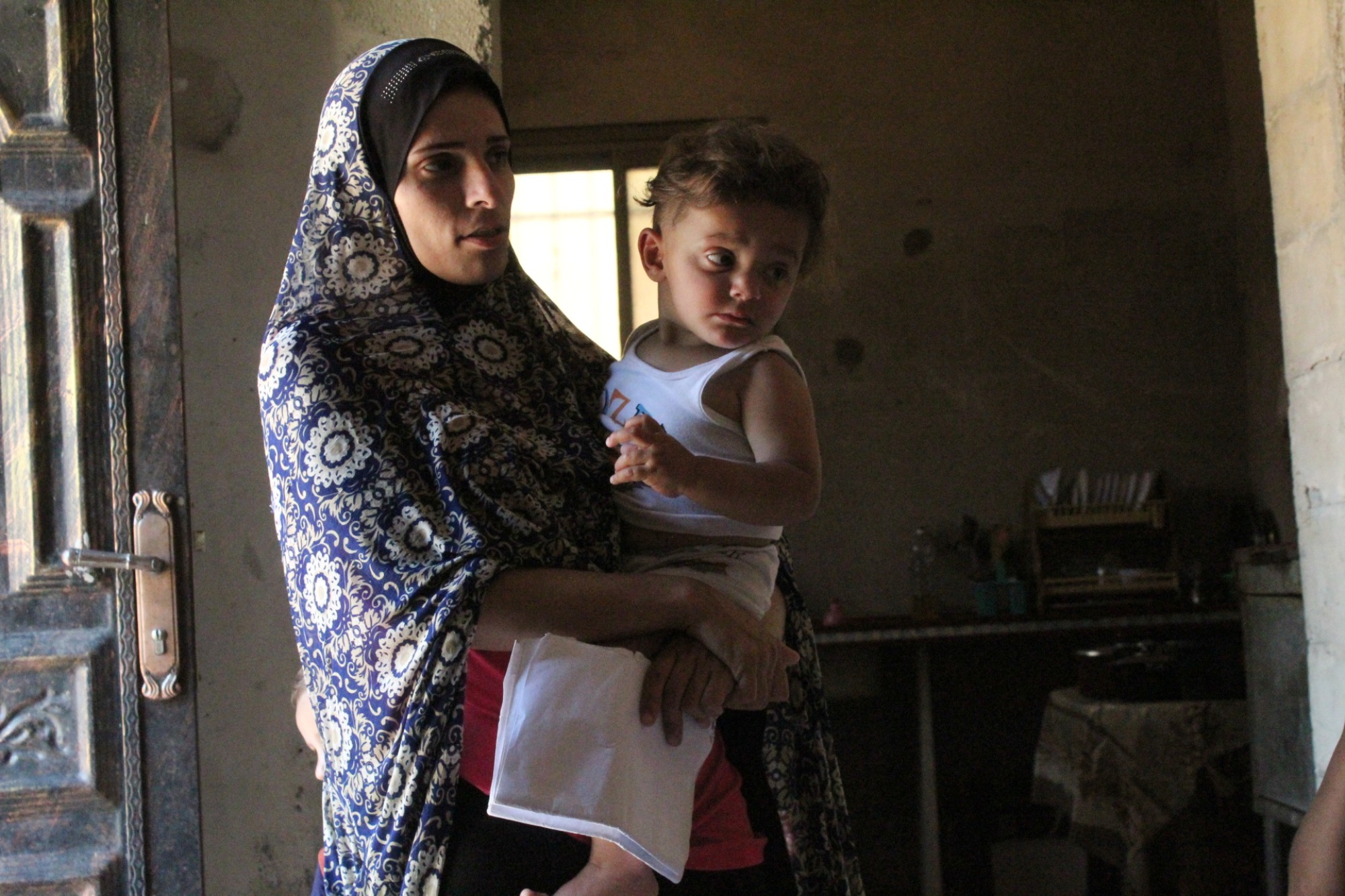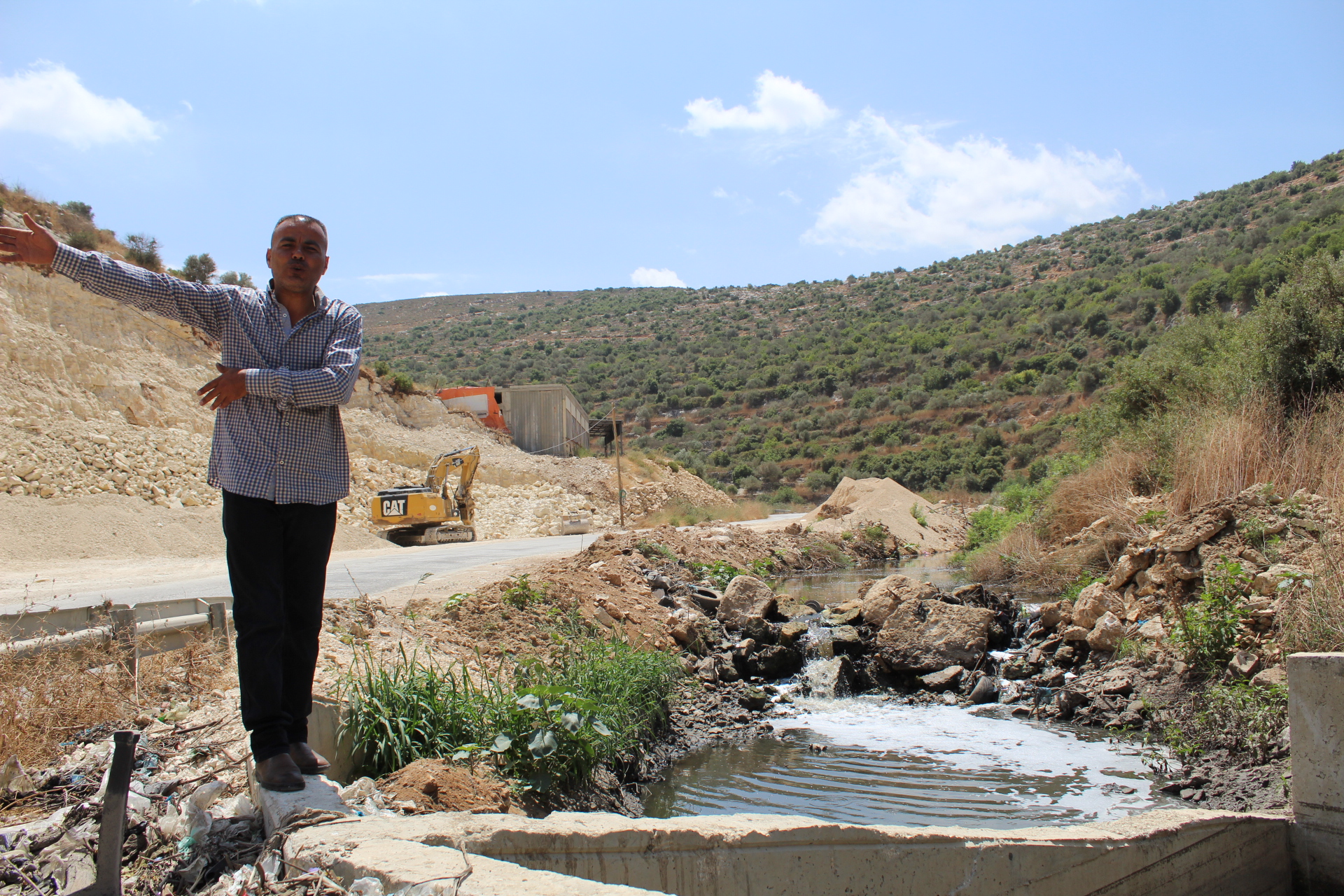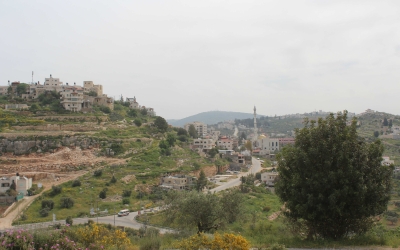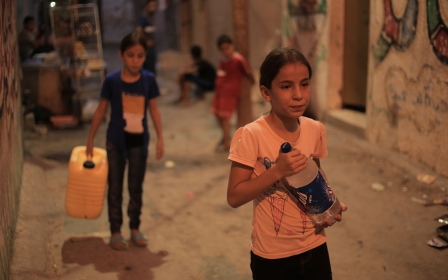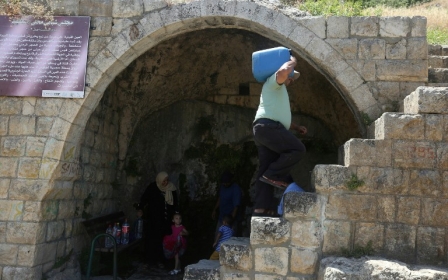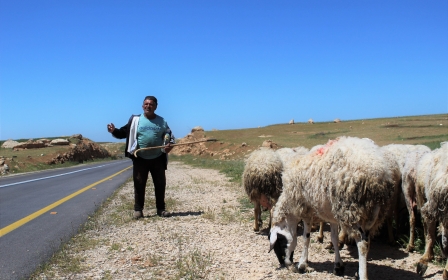'They just die': Palestinian village choked by Israeli settlement dumpsite
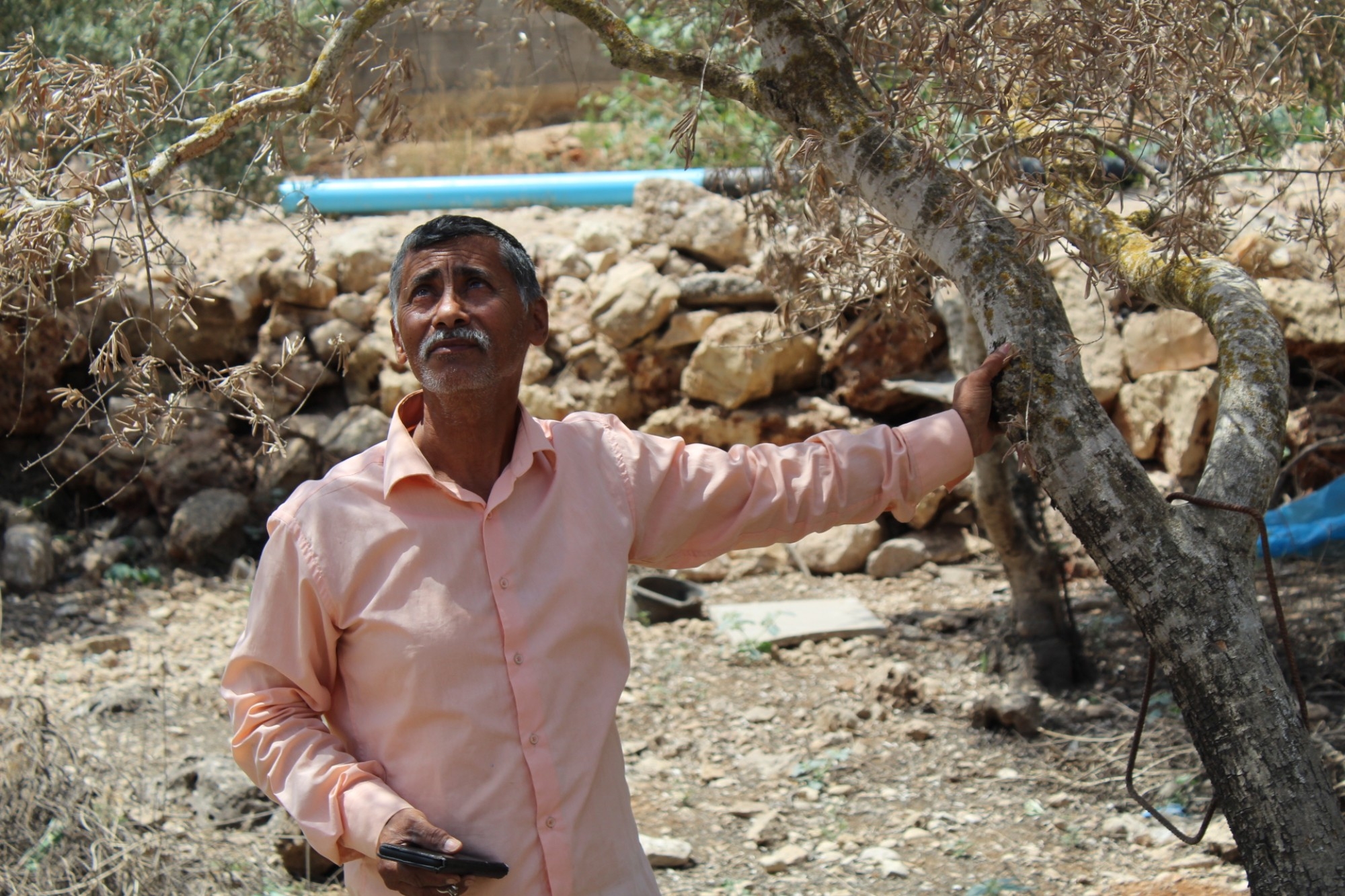
Sitting outside of Ahmed Abdulrahman’s home in the al-Matwa valley, the summer humidity makes the smell of human excrement almost too potent to handle.
Israeli settlements and industrial factories loom over the valley on the hilltops. A stream of sewage runs steadily below.
“The mosquitos don’t let us sleep. We are scared of diseases, especially in children,” Abdulrahman, 62, told Middle East Eye, his face long and tired. For the past three years, his wife has been one of the many residents of the area to have been diagnosed with cancer.
The Matwa and al-Atrash valleys - located in the Salfit district of the occupied West Bank between the Palestinian cities of Ramallah and Nablus - collect mismanaged wastewater from both Palestinian residents in Salfit and Israeli residents of the nearby illegal Ariel and Barkan settlements.
According to a 2009 report by Israeli human rights organisation B’Tselem, Palestinians living in these valleys are exposed to “untreated wastewater [which] contains viruses, bacteria, parasites, and heavy, toxic metals [that are] dangerous to the health of humans and animals”.
New MEE newsletter: Jerusalem Dispatch
Sign up to get the latest insights and analysis on Israel-Palestine, alongside Turkey Unpacked and other MEE newsletters
The toxic stream has had a devastating effect on the health and livelihoods of Palestinians in the area - and while Israeli authorities have denied responsibility, studies have raised serious concerns about the long-term effects of this environmental and medical disaster.
‘They just die’
The entire village of Bruqin runs through the Matwa valley, houses peppering the mountainsides.
Standing on a peak, Murad Samara, a Bruqin municipality employee and Palestinian Medical Relief Society volunteer, points at homes in which someone he knows is sick or has died of an illness believed to be related to the infamous sewage stream.
He emphasises their range of ages: a middle-aged man in this house died from cancer five years ago; a 15-year-old girl in that house collapsed in her schoolyard last year and died two months later from another form of late-stage cancer.
“Every day we learn that someone we know has a disease,” said Ammar Barakat, 37, who has seen firsthand the impact of the pollution on his family and community in Bruqin, one of the most affected villages in the Salfit district.
His brother passed away two years ago from cancer that was caught too late. Ammar Barakat’s neighbour, Farouq Barakat, lives in a household with 24 children. Farouq’s wife, Maye, is constantly stressed over the health of her children and step-children.
Her youngest son, one-and-a-half years old, has respiratory problems, and three-year-old Rasha has had leukaemia since she was one.
“It’s normal to be sick here,” Maye Barakat says. “The smell, the water, everything is very bad.”
While untreated wastewater has a serious impact on public health, toxic chemicals from nearby factories seeping into the water constitute a worse threat.
In 2017, B’Tselem reported that the state of Israel was exploiting Palestinian land for the treatment of various wastes created not only in illegal settlements but from inside the Green Line.
In the report, the Ariel and Barkan settlement industrial zones are said to contain two of the 14 Israeli-run waste treatment facilities in the occupied West Bank and East Jerusalem.
The Ariel and Barkan industrial zones treat hazardous used oil and electronic waste - waste deemed too dangerous to treat inside Israel under its environmental protection laws - and hence relocated to the occupied Palestinian territory where such Israeli regulations don’t apply.
Open pipes near these industrial zones are clearly visible, with wastewater running into the Matwa and Atrash valleys.
Looking out to the blended stream of toxic waste running past his home, Ammar Barakat said bleakly: “Really, we are living in hell.”
For Abdulrahman Tamimi, a doctor at the only hospital in Salfit, the correlation is clear.
“The people from these particular villages [near the industrial settlements] have the same characteristics, the same diseases,” he explained. “You can conclude that there is some problem over there.
“We see many people coming in recently with cancer… which is really rare at a young age, between 20 and 25 years old,” Tamimi continued.
The cases he sees vary from lung to bone cancer, but each case is aggressive. For a variety of social and economic factors, Tamimi often sees his patients when it’s too late.
'Every day we learn that someone we know has a disease'
- Ammar Barakat, Bruqin resident
“They live for three months after their diagnosis and they die. They just die. They don’t come at the early stages,” he told MEE.
Three years ago, the Bruqin municipality built a pipe to help alleviate some surface-level problems caused by the sewage stream, such as the smell and mosquitoes. But these efforts have proven insufficient.
The village of Bruqin stretches across 10 kilometres through the Matwa valley, while the pipe is only two kilometres long. Meanwhile, physical garbage often clogs the pipe.
“The pipes haven’t fixed any problems because they get full and leak, creating a sea of wastewater that damages our land,” said Abdulrahman, the Bruqin resident whose wife suffers from cancer.
Two months ago, his land flooded with wastewater seeping from the clogged pipes. Abdulrahman said 22 of his 50 olive trees either died or became diseased, with branches completely bare just a few months before the harvest season.
“We are afraid that the olive harvest this year won’t be consumable because the wastewater also has chemicals from the settlements,” Abdulrahman told MEE.
He estimates he will lose close to 2,000 shekels ($565) from the damage for this year’s harvest - not to mention the long-term effects of losing nearly half of his grove.
The flooding is not only ruining his land, but breaking up his family. The wives of his sons and neighbours leave their homes when flooding occurs, taking their children to different villages.
“They go for a month until the water is gone and they come back,” Abdulrahman said, “but then after a month the sea is back and they leave again.”
‘The main problem is the occupation’
In an official statement to Middle East Eye, the Ariel municipality denied that the Israeli settlement had any responsibility for the ecological and health crisis in the Salfit area.
“All of the sewage from the city of Ariel goes through a sewage treatment plant and all of the runoff that comes from Ariel is water that has already been treated,” the statement read.
B’Tselem, however, has stated that the wastewater treatment facility in the Ariel settlement “ceased functioning altogether in 2008”.
The settlement municipality went on to place the blame squarely on Palestinians - who are often referred to in Israel as just "Arabs".
“Unfortunately, the neighbouring Arab communities do not treat their sewage, specifically in the area of Salfit,” the statement continued. “Their sewage runs directly into the Wadi and those waters trickle down into the mountain aquifer, which pollutes the water and harms everyone’s health.”
“The main problem is the occupation [because] we have no power,” Samara, the Bruqin municipality employee, said confidently.
Samara explained that the Salfit municipality of the town of Salfit has been trying to create a wastewater treatment facility to serve the district since 1989.
Two separate projects backed by European funding in 2000 and 2009 also failed because Israeli authorities refused to issue construction permits to build the facility on Matwa land, being in Area C of the West Bank that is under complete Israeli military control.
The 2009 project was met by an Israeli ultimatum: it would grant permission for a German-funded treatment facility in Area C land if it also treated Ariel’s waste.
The Palestinian Authority denounced the offer as de facto recognition of Ariel’s legitimacy, despite Israeli settlements being illegal under international law.
Though a brand new sign on Bruqin land announces yet another attempt at building a treatment facility funded by the German Bilateral Financial Cooperation, even if the project is successfully completed by its stated 2022 deadline, the effects of decades of exposure to toxic sewage may be irreversible.
Irreversible damage
Dr Mazin Qumsiyeh, a professor of genetics and molecular and cellular biology at Bethlehem University and a well-known activist, has pioneered research on the long term, intergenerational effects of exposure to toxic waste.
Qumsiyeh and a team of graduate students collected blood samples from one control and two test groups in two separate studies - one testing Palestinians from Bruqin in 2013 and one in 2016 from Idhna, another Palestinian village dangerously close to an Israeli industrial zone.
The study found a significant number of chromosomal breaks in the cells of residents near industrial zones as compared to the control group. Chromosomal breaks, or damage to DNA, increase the chance of infertility, congenital birth defects, and cancer.
“The evidence is overwhelming that it cannot be by chance alone that there is a difference between [the control and test] samples,” Qumsiyeh told Middle East Eye.
“This is a highly significant finding that indicates that the presence of this industrial settlement is what is causing these damages.”
Though Qumsiyeh believes “this can be an important tool to challenge Israel in international courts”, the residents of Bruqin, like the Barakats, yearn for a more immediate solution.
“Most Palestinians think about freedom from the occupation,” Ammar Barakat said. “All I ask for is fresh air. Until then, I can’t think about anything.”
This article is available in French on Middle East Eye French edition.
Middle East Eye delivers independent and unrivalled coverage and analysis of the Middle East, North Africa and beyond. To learn more about republishing this content and the associated fees, please fill out this form. More about MEE can be found here.


